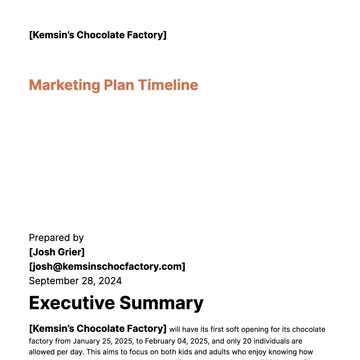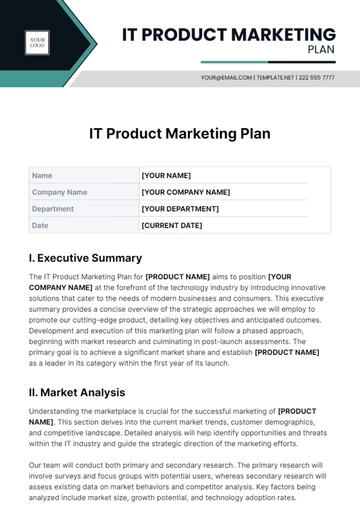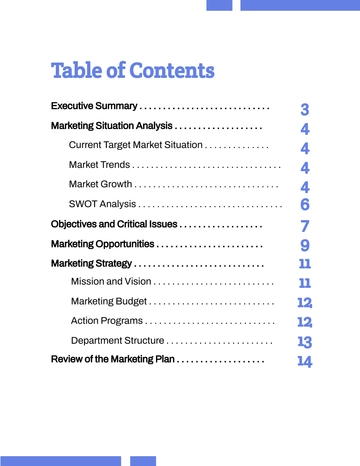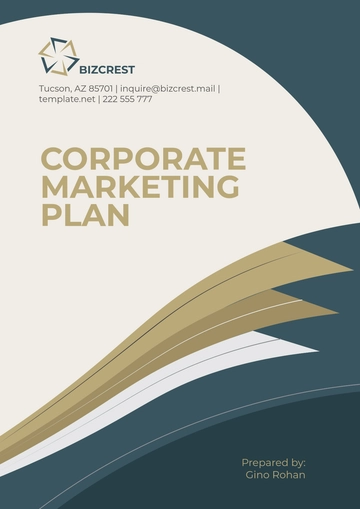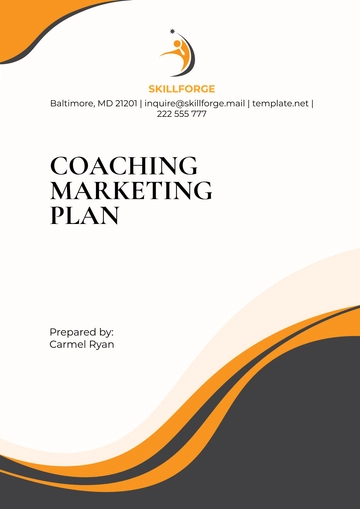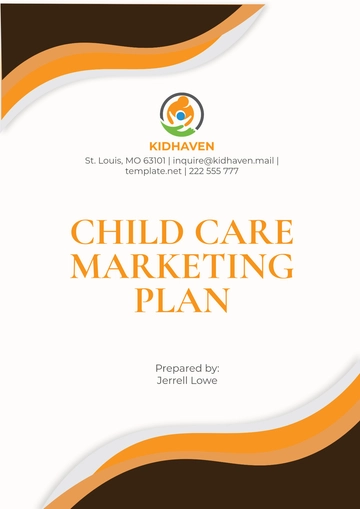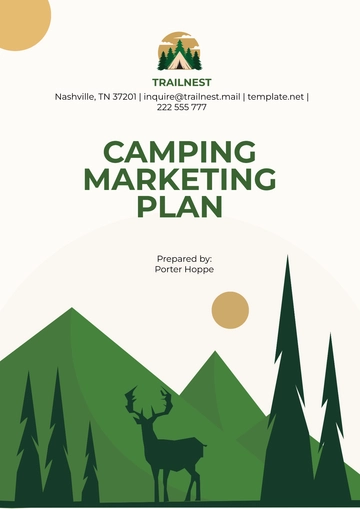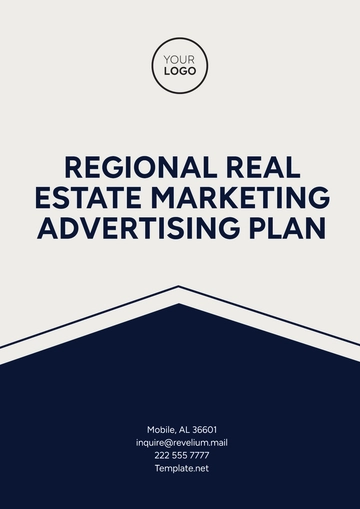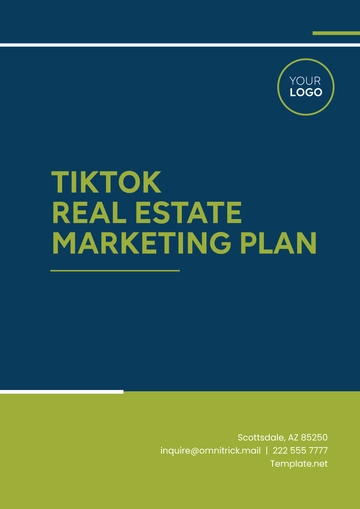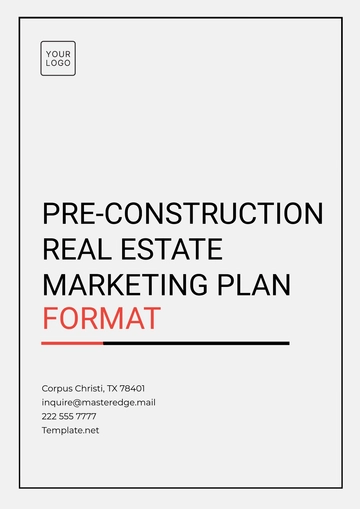Free Marketing Plan for Daycare Business
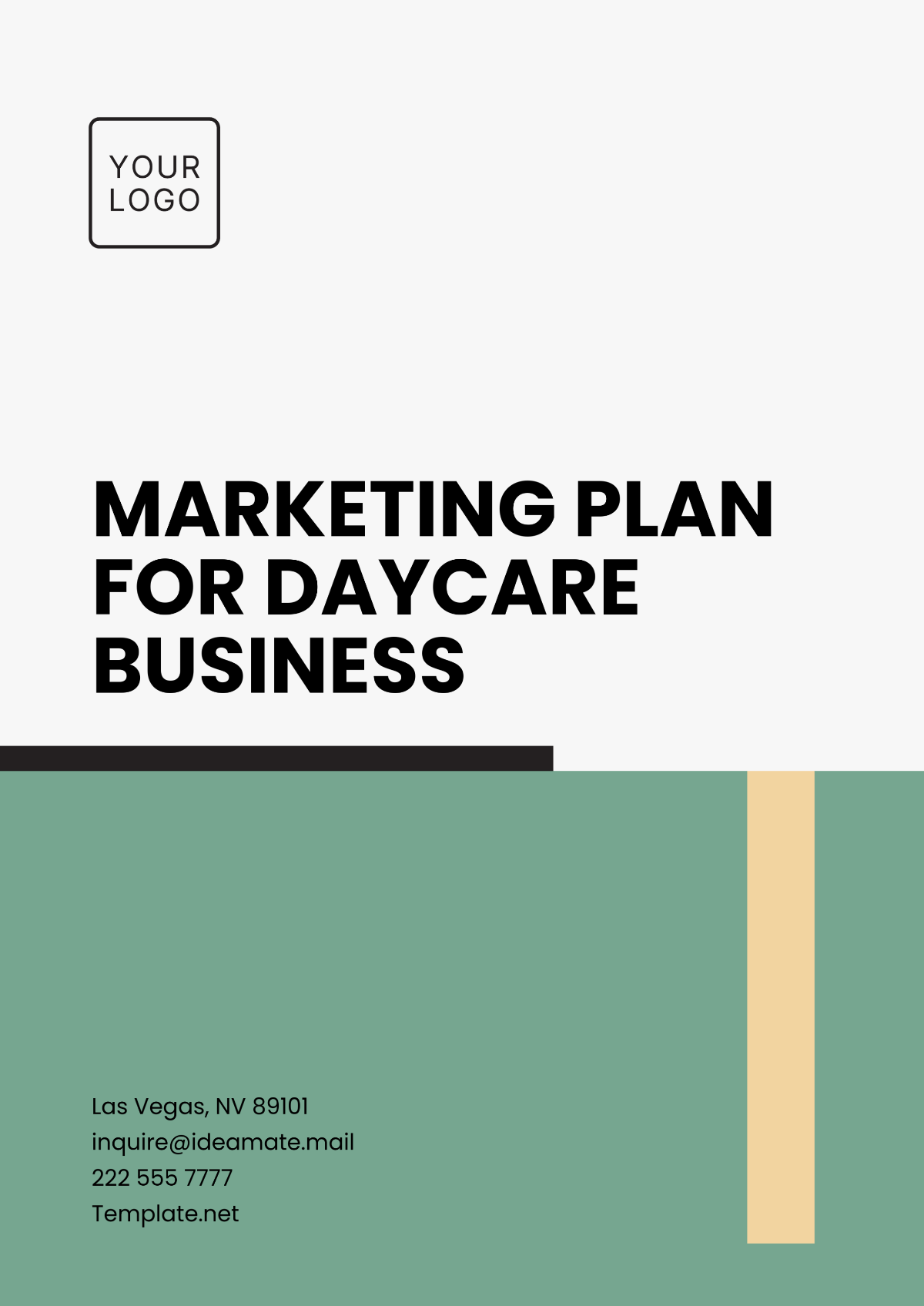
Prepared by:
[Your Name]
[Your Company Name]
1. Executive Summary
This Marketing Plan outlines the strategies our daycare business will implement to increase visibility, attract new clients, and foster business growth. The plan emphasizes identifying our target market, building brand awareness, retaining existing customers, and promoting new services. Our goal is to position the daycare as a trusted, reliable, and high-quality childcare provider within the local community.
2. Market Analysis
2.1. Target Market
Our primary target market includes:
Parents of young children (ages 0-5) looking for reliable and nurturing childcare services.
Working professionals seek daycare options that offer flexible hours and a safe, educational environment for their children.
Families with children with special needs require tailored care programs.
Residents within a defined geographic radius around our daycare center.
2.2. Market Trends
Increasing demand for flexible childcare hours and after-school care programs.
Growing emphasis on early childhood education and enrichment programs.
Strong community focus on safety, hygiene, and trustworthy staff.
Rise in parents seeking daycare centers with innovative learning curriculums and play-based educational systems.
2.3. Competitive Analysis
Our competitors include local daycare centers and home-based childcare services. Online reviews and reputation play a critical role in parents’ decision-making. While other providers may offer similar services, we differentiate ourselves through personalized care, highly qualified staff, and educational programs tailored to each child's needs.
3. Marketing Objectives
Increase brand awareness within the local community.
Attract new customers by targeting families in need of high-quality daycare services.
Retain existing clients by offering personalized care and exceptional customer service.
Launch a new after-school program and promote it to working parents.
Increase enrollment by 20% over the next 12 months.
4. Marketing Strategies
4.1. Online Marketing
Website Optimization: Ensure our website is mobile-friendly, easy to navigate, and includes key information such as services, pricing, and educational programs.
Search Engine Optimization (SEO): Implement SEO best practices to rank for keywords like “daycare near me,” “trusted childcare services,” and “affordable daycare in [location].”
Social Media Marketing: Use platforms like Facebook, Instagram, and Pinterest to share updates, parenting tips, educational resources, and behind-the-scenes glimpses of our daycare. We will also run paid ads targeting local parents.
Email Campaigns: Create an email newsletter offering parenting tips, daycare updates, and seasonal promotions.
4.2. Community Engagement
Local Partnerships: Collaborate with local schools, pediatricians, family centers, and community organizations to build credibility and increase visibility.
Sponsorships and Events: Sponsor local family events or organize open houses to invite families to visit, meet staff, and tour our facility.
Referral Program: Encourage current families to refer friends and family by offering a discount or free services for each successful referral.
4.3. Traditional Marketing
Flyers and Brochures: Distribute in local parks, grocery stores, pediatric offices, and libraries, places where parents frequent.
Local Advertising: Advertise in community newspapers, magazines, and bulletin boards to reach potential customers who may not be active online.
Billboards: Rent space on strategic billboards near busy intersections or schools to capture the attention of parents on their way to work.
4.4. Special Promotions and Offers
Free Trial Days: Offer a free day of daycare for new clients to experience our services firsthand.
Seasonal Discounts: Create special offers during holidays or the start of the school year to attract more families.
Sibling Discounts: Provide discounts for families enrolling multiple children.
5. Budget
A detailed breakdown of our marketing budget to ensure effective resource allocation:
Marketing Activity | Estimated Cost ($) |
|---|---|
Website Development and SEO | 2,500 |
Social Media Advertising | 1,000 |
Flyers and Brochures | 500 |
Community Sponsorships and Events | 1,000 |
Local Newspaper Advertising | 750 |
Referral Program Incentives | 400 |
Email Campaign Platform (Annual) | 300 |
Total Estimated Budget | 6,450 |
6. Implementation Timeline
Task | Timeline | Responsible Person |
|---|---|---|
Website Optimization & SEO | Month 1-2 | Marketing Team |
Social Media Setup & Ads | Month 1 | Social Media Manager |
Flyers and Brochures Distribution | Month 2 | Marketing Assistant |
Community Event Sponsorship | Month 3 | Community Relations |
Launch Referral Program | Month 4 | Customer Service Team |
Free Trial Days and Seasonal Offers | Month 5 | Sales Team |
7. Key Performance Indicators (KPIs)
To measure our marketing efforts’ success, we will track the following KPIs:
Increase in website traffic by 25% over the next 6 months.
Social media engagement (likes, shares, comments) by 20%.
Number of new enrollments from referrals and special promotions.
Customer retention rate of 85% or higher.
Revenue growth from increased enrollments by 20%.
8. Conclusion
This Marketing Plan provides a comprehensive approach to promoting our daycare business, enhancing brand recognition, and increasing customer acquisition and retention. By focusing on a balanced mix of online and offline strategies, community engagement, and special promotions, we will successfully build a strong presence in the local market and meet our growth objectives. Continuous monitoring and adjustments to the plan will ensure sustained success and profitability
- 100% Customizable, free editor
- Access 1 Million+ Templates, photo’s & graphics
- Download or share as a template
- Click and replace photos, graphics, text, backgrounds
- Resize, crop, AI write & more
- Access advanced editor
The Marketing Plan for Daycare Business Template from Template.net is fully editable and customizable to fit your daycare's marketing needs. It includes sections for strategies, goals, and target audiences. Easily modify the template using our AI Editor Tool to create a personalized, professional marketing plan that helps drive success for your daycare business.

